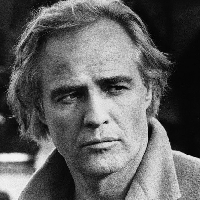Charlie Kaufman typ osobowości MBTI
Osobowość
"Jaki typ osobowości jest {profilename}? {profilename} jest typem osobowości {mbti} w mbti, {enneagram} - {iv} - {tritype} w enneagram, {big5} w Big 5, {sociionics} in Socionics."
“Eternal Sunshine” and “Synecdoche, New York” are INFP cornerstones for reasons that go deeper than existential vibes. It is hard to judge the MBTI types of filmmakers, who inherently must convey themselves through external images, but Kaufman’s Fi and Ne are undeniable. The deeply personal nature of his work is abundantly clear in his 2020 novel Antkind, a sprawling and impressionistic work of turbulent self-actualization. The character B. Rosenberger Rosenberg, not unlike other Kaufman protagonists, is Kaufman’s thinly-veiled self-caricature. He takes every opportunity possible to bemoan his romantic/social insecurities and internalized ethical concerns like only an INFP could—and criticizes “Charlie Kaufman” in hilariously self-deprecating ways. The tension between Rosenberg’s self-perception and how he fears other perceive him comes with many layers of fourth wall-breaking that make the emotional honesty impossible to ignore. Kaufman’s theories serve his emotional perspective entirely, and he makes no attempt to hide behind characters or symbols like INFJs tend to, although he certainly has a gift for characters and symbols. The difference is that Kaufman’s need to express his subjective identity permeates every page and every frame. His Fi comes first. Meanwhile, his Ne is all over the place, conjuring every alternate scenario and belletristic thought experiment that crosses his mind, often in random ways that emphasize sheer cleverness or humor above all else. These intuitions DO ultimately cohere into a worldview, but it’s a very Fi worldview that emphasizes the subjectivity of perception, the illusory nature of certainty, the universality of loneliness, and the unavoidability of personal hypocrisy. INFJs are too focused on their ideological missions to take as many spontaneous risks as Kaufman does (seriously, Antkind is WILD), while INTPs generally lack Kaufman’s neurotic obsession with his own moral intentions. But the biggest INFP giveaway is how Kaufman relentlessly tries to express his feelings against the assumptions of others, then chides himself for doing just that. I understand the INTP votes, due to the logical frameworking that makes up the structure of a typical Kaufman movie, but I would argue that this is a relatively healthy example of an Fi-Si loop: Kaufman’s Fi fear of being seen as incompetent reinforces his Si’s need for thoroughness in ways many INFP creatives will understand. Kaufman’s popularity among INFPs comes not just from its mind-expansion and tenderness, but its recognizable yearning for connection that ultimately proves futile. Reading/watching Kaufman as an INFP is like looking in the mirror on acid—obsessing over every blemish, getting lost in a kaleidoscope of existential what-ifs, realizing how absurd this must look to everyone else.
Biografia
Screenwriter of Eternal Sunshine of the Spotless Mind, Adaptation, and Being John Malkovich. Director of Synecdoche, New York, Anomalisa, and I'm Thinking of Ending Things.
Osobowość correlate

Vince Gilligan

Harvey Weinstein

Dan Harmon

Dan Schneider

Jordan Schlansky

Joss Whedon

Ryan Murphy

J. B. Oliveira "Boninho"








